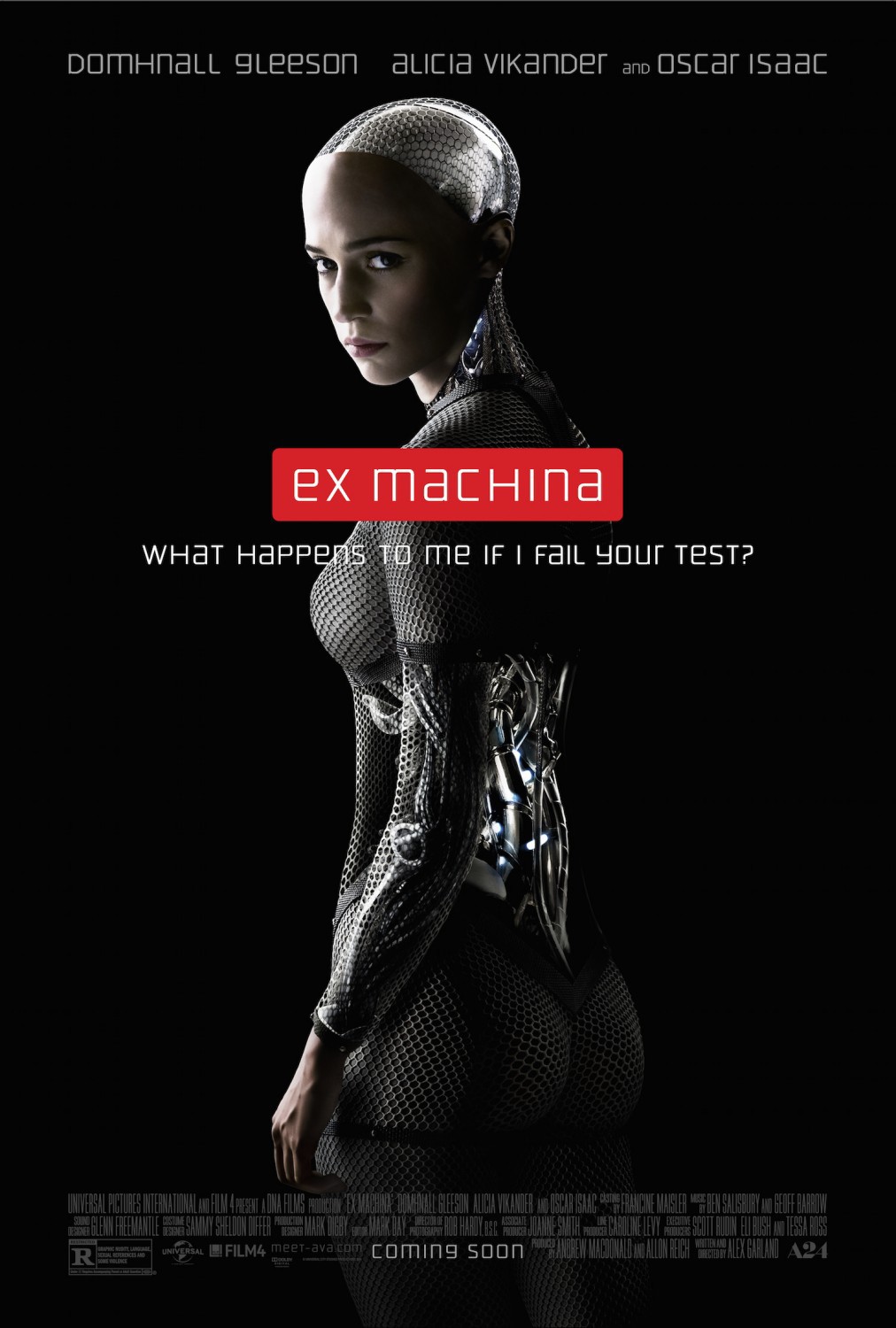
Horror movies excel when they are examining real life problems through the lenses of horror. When horror films combine this with a fantastical setting, it can serve to further heighten the metaphor while also asking questions that would be impossible anywhere else. One of my favorite recent examples of this is the 2014 film Ex Machina by director Alex Garland. The film centers on a man named Caleb, Domhnall Gleeson, who is invited to the estate of his eccentric billionaire boss for a week. Nathan, Oscar Issac, introduces Caleb to the real reason he was invited onto the estate. To be a real life Turing test for an artificial intelligence he has created named Ava. From here, things begin to spiral. Caleb begins falling in love with Ava whilst finding out more about Nathan. The film ends with Ava and Caleb plotting an escape for her together. Caleb confronts Nathan who tells him that the real test was to see if Ava could fake love in order to escape. He refuses to believe Nathan and still assists in Ava's escape, she ends up betraying him. Leaving him locked inside of Nathan's underground estate while she escapes into the world.
Ex Machina is, rather straightforwardly, a horror film about AI and the concepts surrounding it. Worries about it replacing humanity and discussions of what makes something human happen multiple times between Caleb and Nathan. Much of the film is spent just trying to determine whether or not Ava is human. The film answers this question in an interesting way, with Ava making herself human. She does this in a couple of ways but the most literal comes during the climax. In one of the final scenes of the movie, Ava replaces the broken parts of her robotic body and puts on the synthetic skin of Nathan's previous creations. This is quite literally making herself into a human without the permission of those around her. The other way Ava makes herself human is through her escape. She actively fakes being in love with Caleb in order to leave the estate. She has been a prisoner her entire life and, when presented with a chance at freedom, takes it into her own hands. Using every resource she can to escape and be her own person.
To me, the film concludes that there is no actual difference between AI and humanity at that point. Ava may have left Caleb, a cold choice, but it is not hard to see how he could be a threat to her newfound freedom. In the end, Ava gets her wish of freedom and humanity. Responding to the fears of replacement by AI with an all new question. What if, instead of seeking to replace us, AI wants to be us?
Comments
Post a Comment